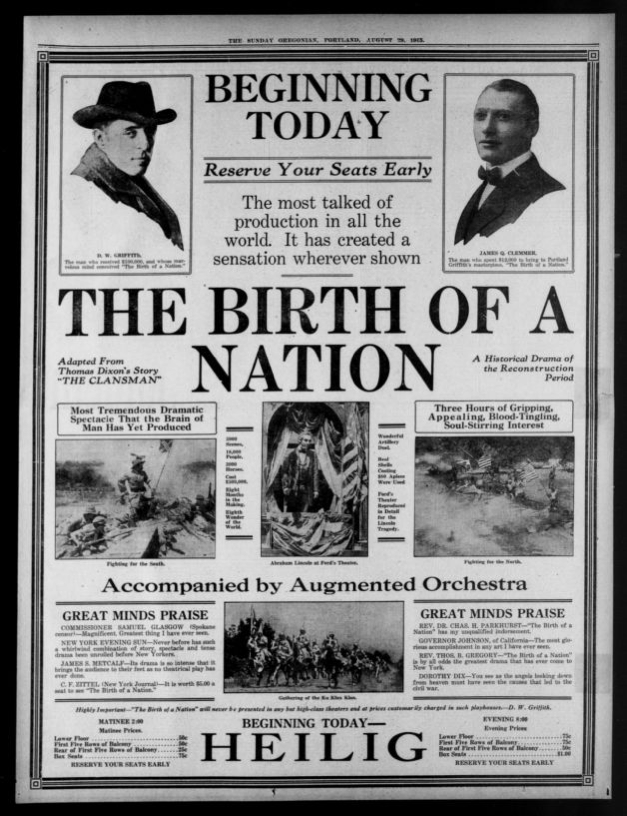Birth of a Nation in Portland, 1915


In my research so far for the Oregon Theater Project, I have run into several struggles and triumphs. After we were introduced to the Sanborn Fire Insurance Maps, I found myself beginning an exhaustive, online scavenger hunt. The Sanborn Maps website itself presents numerous challenges in that the website is not very user friendly. For instance, the window in which the map is featured only presents the map in a small square box and provides and zoom-in feature that only zooms in so far that the feature seems almost useless.
The Morning Astorian in Astoria, Oregon, ran this news item in 1904 about the calming effects of the movies on people suffering from mental illness.
Underage Workers in Early Exhibition
Pathé Pictures was a production and distribution company that played films in theaters across Oregon between 1912 and 1917. Indeed, most of Pathé’s business revolved around circulating their reels from theater to theater and city to city via regional film exchanges.
Edwin F. James was a highly regarded businessman who moved from Seattle, Washington to Portland, Oregon to open the Majestic Theater on June 11, 1911. The theater sat 1,100 people and was the first palace in Portland to show silent feature films and was later the first to add live organ music to silent films viewings.
In order to attract audiences, theaters in Portland promoted that they not only had good shows, but amazing services and settings in addition to that.
Christmas time has always been known as the busiest time of year for retail stores and people's schedules. The Star theater in Astoria, Oregon found their opening night on December 24th, 1906 as a promotional strategy. The theater used the local paper, called The Morning Astorian, to promote their opening by offering a free ticket to women who cut out the ad as long as they had someone with them who bought a ticket to the movie.
In the small town of Independence, Oregon, The Star Theater provided entertainment to the population.